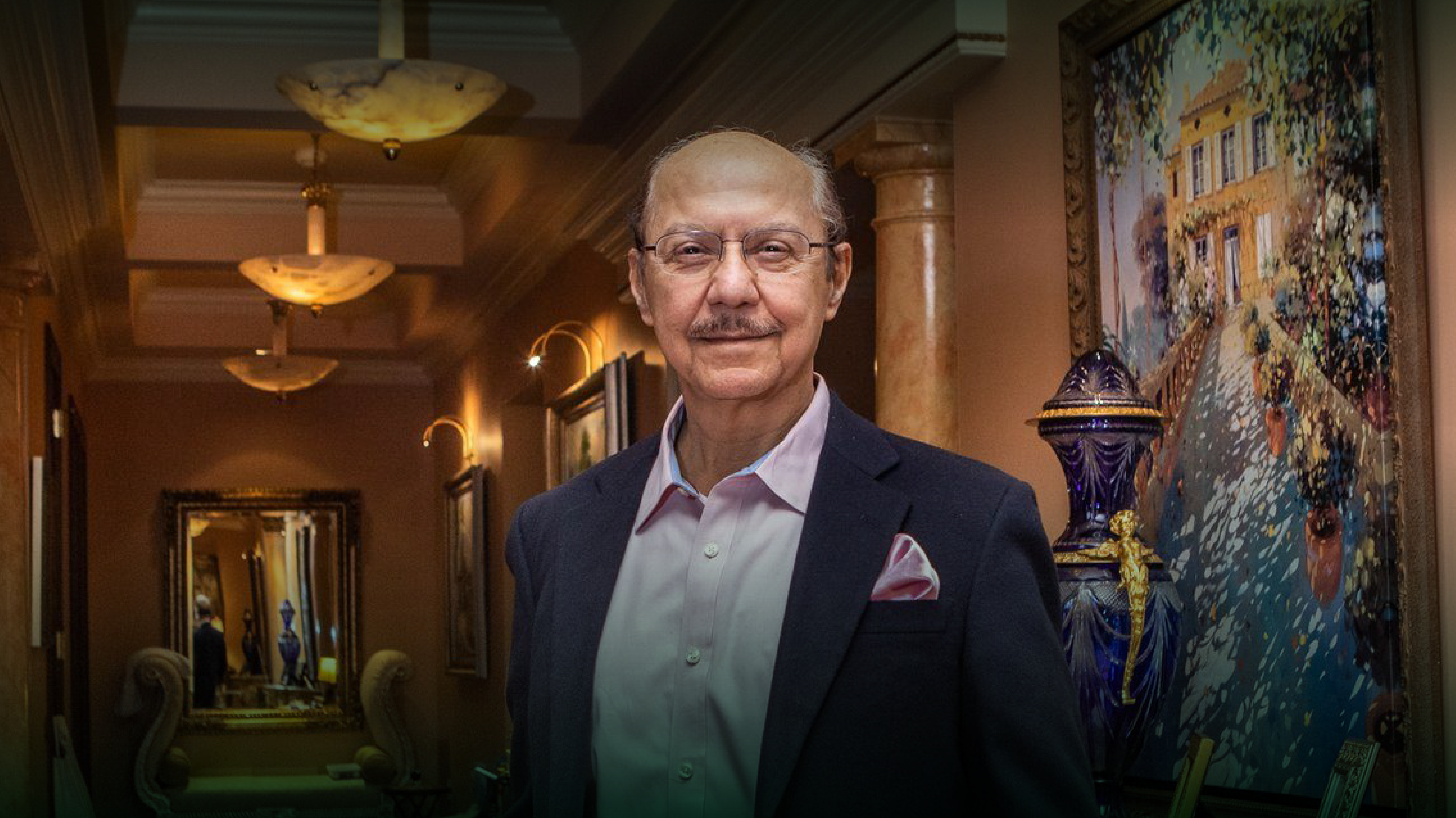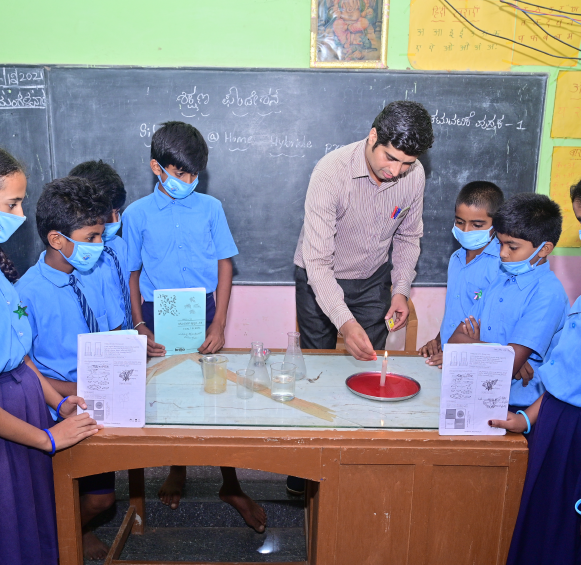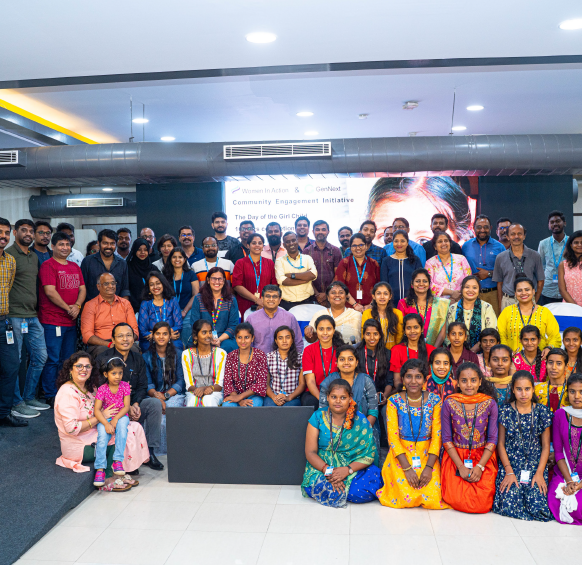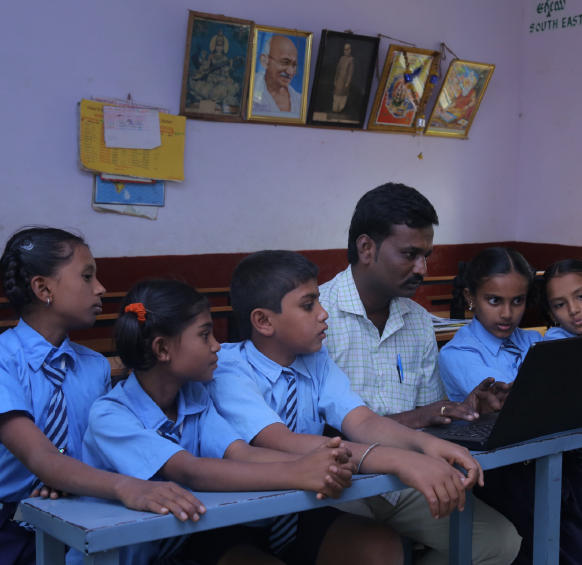Philanthropy with Purpose: An Inspiring Vision for India's Future
In the dynamic landscape of technology and multimedia publishing, Prashanth Prakash's entrepreneurial prowess shone as he established two successful enterprises in the late 90s. He later ventured into the world of investing, co-founding Erasmic Ventures, a pioneering seed-fund for technology startups that eventually evolved into Accel India. He was an early pioneer in India’s technology and innovation startup ecosystem, investing in startups like Flipkart, Swiggy and BookMyShow with his colleagues at Accel before they acquired global prominence.
Beyond the boardrooms and investment portfolios, Prashanth felt an inner calling to give back to society. However, it was a pivotal conversation with Ramamurthy ES, the former chairman of Bharat Heavy Electricals Limited, in the early 2000s that truly ignited his philanthropic journey. Ramamurthy's words struck a profound chord with Prashanth: "There’s nothing wrong with a feel-good story…but if somebody has the capacity to change 10,000 schools and is instead happy with changing only five, that’s not great."
This encounter led Prashanth to recognize the potential for the social sector to leverage relevant approaches and thinking from the corporate world, particularly in terms of accountability and measuring outcomes. Ramamurthy's insights on effectively leveraging resources and utilizing government support to achieve scale resonated deeply with him. Prashanth recognized that his expertise in investing and scaling could be leveraged for positive disruption in social building and social entrepreneurship.
“I think I jumped in [to philanthropy] so early because what Ramamurthy said resonated with me,” said Prashanth. “Otherwise, I probably wouldn’t have gotten into the nonprofit world, because the status quo didn’t excite me.”
Thus, with a renewed sense of purpose, Prashanth began to work with Sikshana —an education nonprofit founded by Ramamurthy that was working with 10 public schools in villages outside of Bangalore – and helped them gradually expand their work from 10 to 100 schools.
Scaling Impact, Empowering Communities, and Pioneering Systemic Transformation
Looking back on his initial foray into philanthropy, Prashanth highlighted a few key lessons that informed his journey. He learned how important ‘leverage’ was, and then reconfigured his ideas about scale. He began to think about how to leverage both technology (to monitor progress and impact) and government resources, while broadening his understanding of scale (looking at it as systemic transformation instead of mere expansion).
However, Prashanth noted, “It is easy to say that we should leverage the government, but how do you convince the government that a small experiment has statistically significant data which warrants it being adopted across the system?”
Prashanth came across this problem when he first started working with Sikshana. The organization adopted an approach different from what was popular at the time – they focused on students’ readiness to learn and motivation instead of improving infrastructure/building teacher capacity. The government sought proof of concept before deciding to scale this project, so apart from Prashanth’s own philanthropic capital, they had to secure private funding to implement their program across an entire district. Fortunately, they received a sizable grant from Dell that enabled them to demonstrate the impact they could deliver. Sikshana has since partnered with the government to reach more than 30,00,000 students across 6 states.
Prashanth also learned that “the sustainability of what you are doing is heavily reliant on the community being an integral part of your intervention.” To facilitate such integration, he said organizations must ensure that their interventions are purpose-fit to the context in which they are to be scaled, while also being replicable.
But the process of enabling systemic change should not result in the organization itself getting sucked into the system. This means that programs should be designed to be handed over. “To make a program sustainable, you have to engineer an exit early on. Otherwise, your funding becomes perpetual,” said Prashanth.
Prashanth carried forward these insights into his work on environmental issues. As the chairman of United Way’s Bangalore chapter, he was involved in the Wake the Lake program, which sought to implement a model to rejuvenate the deteriorating lakes in Bangalore. As with Sikshana, the model was initially seeded by Prashanth’s philanthropic support and funds from IT companies headquartered around the lakes. The government funds subsequently augmented the program by building infrastructure for treating the water in the lakes. Lastly, a trust was established to take ownership of each of the rejuvenated lakes. This ensured that United Way was able to exit by warranting that relevant stakeholders took over while maintaining the government as a party to it. The campaign has resulted in the rejuvenation of more than 20 lakes around Bangalore and an improvement in their surrounding greenery.
When reflecting on how he approaches his philanthropy today, Prashanth said, “These learnings are always in the back of my mind, and anything that I’m considering working on is put through this filter before I decide whether it's worth investing my time, energy and money into.”
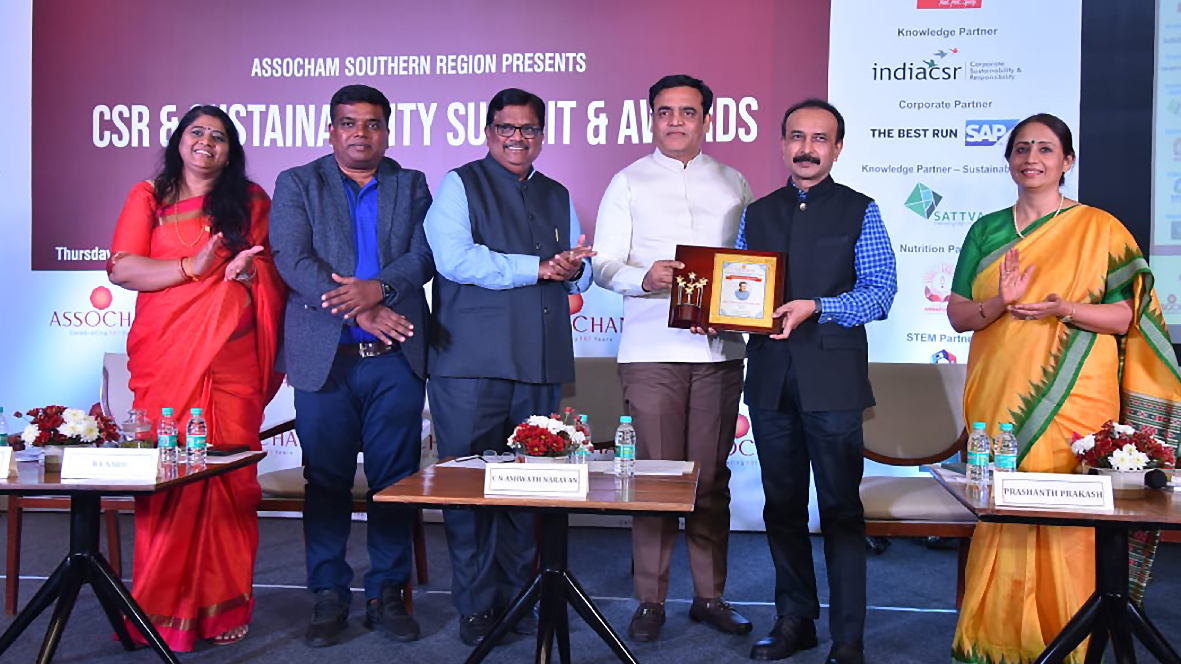
ASSOCHAM honors Prashanth Prakash as Social Impact Leader 2021 | Image courtesy: India CSR

Students of Sikshana, an education non-profit, Prashanth Prakash has been working with and supporting |Image courtesy: Sikshana
ACTing to Address the Pandemic and Create Systemic Change
The pandemic served as an inflection point for Prashanth, who partnered with other venture capitalists, private equity investors, and startup executives to collectively form the Action COVID Taskforce (ACT)—an INR 500 crore (~ $60 million) COVID-19 relief fund to address urgent needs like oxygenation, vaccination, and home care. “The biggest learning from ACT was the power of the collective,” said Prashanth. Under the ACT banner, approximately 50 venture funds, 100 founders, 25 global foundations were able to put aside their respective agendas to work together as a collective. This experience made Prashanth realize that private sector capital, innovation, and a global network can drive rapid scale.
In order to maintain the gains made by ACT and optimize the remaining corpus, Prashanth, in collaboration with fellow partners, initiated the launch of ACT Grants—a multi-cause platform that provides catalytic seed capital to mission-driven entrepreneurs leveraging technology and innovation to address social needs at scale. Thus far, ACT Grants has provided over INR 50 crore (~ $ 6 million) in funding to 33 organizations working in the field of healthcare, education, and environment. Prashanth remains a dedicated supporter of ACT and currently serves as the Core Anchor on the Investment Committee of ACT for Environment, an INR 100 crore fund (~$12 million) aimed at catalyzing climate action through innovations to achieve net zero carbon emissions, water security and land rejuvenation.
Prashanth's philanthropic approach challenges traditional norms, encouraging support for both for-profit and nonprofit ventures, provided their dedication to the cause is central to their mission. With the grant fund, he aims to spark additional funding for the organizations they back, leveraging ACT's due diligence and smart capital to create a multiplier effect. In the two years since its establishment, 50% of ACT’s grantees have also secured funding from other sources.

Panoramic view of a lake rejuvenated as part of the 'Wake the Lake' program in Bangalore | Image courtesy: Wake the Lake
New Era of Indian Philanthropy
Prashanth firmly advocated for a paradigm shift in the trajectory of next-generation philanthropy. He stressed the imperative for philanthropists to be deliberate in their actions—strategically directing their resources, carefully selecting impactful models and mechanisms, and forging fruitful collaborations with others. Reflecting on the early inspiration he found in Ramamurthy, he shared, "Meeting him sparked my philanthropic journey at a young age, but it led me to wonder: How can we create a mechanism that ignites philanthropy among the younger generation of entrepreneurs?"Collaborating with young philanthropists during the pandemic, Prashanth recognized their catalytic untapped potential for giving. Taking on an advisory role at the Young India Philanthropic Pledge, he aims to encourage young change-makers to dedicate 25% of their wealth to social change through diverse crowd-fundable projects, inspiring continued giving.
As someone who is deeply involved in both venture capital and social impact, Prashanth views the future of India as one that makes the best of both worlds. Advocating for more public-private partnerships, he said, “You cannot just leave it to the government to solve everything.” He believes that such collaboration is imperative given that societal problems in this country affect hundreds of millions of people. Looking towards India@100, Prashanth remained ambitious, emphasizing, "What we couldn't accomplish in our first 75 years, we must achieve in the next 25 years before turning 100 and I'm committed to playing my role in realizing this vision."
Inspired thinking presented by

YOU MAY ALSO LIKE
